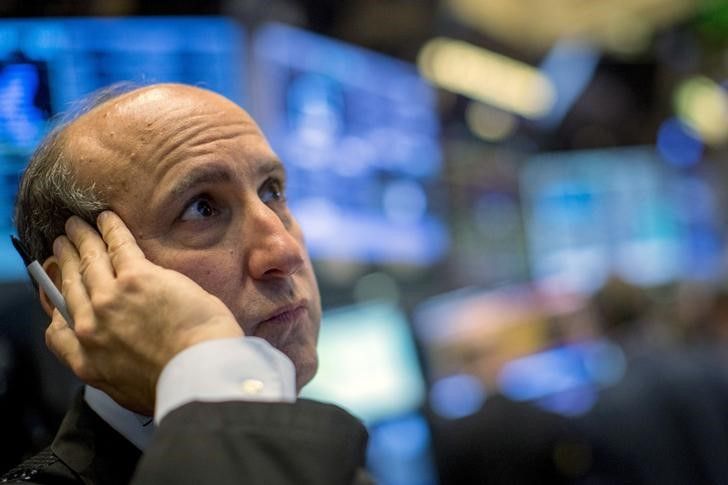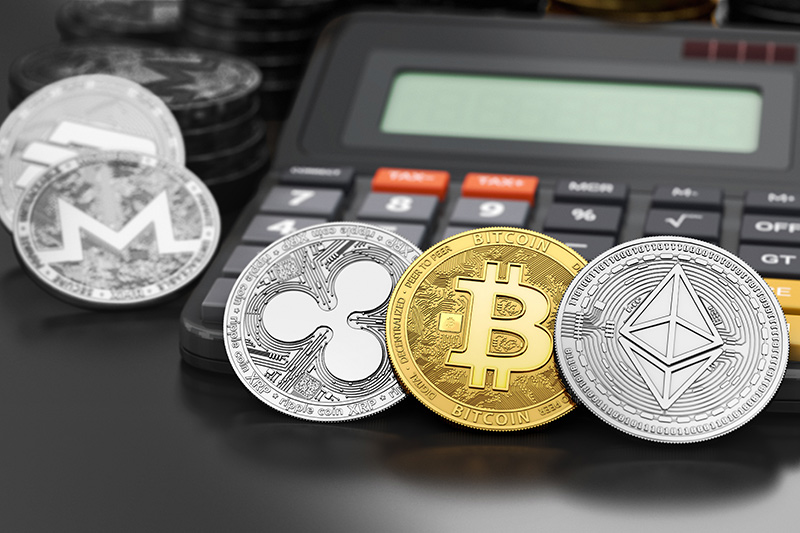© Reuters. FILE PHOTO: A bitcoin is seen in an illustration photograph taken at La Maison du Bitcoin in Paris, France, June 23, 2017. REUTERS/Benoit Tessier/File Photo/File Photo
By Suzanne McGee
(Reuters) – Cryptocurrency enthusiasts hailed the approval of U.S. bitcoin exchange-traded funds as the birth of a new asset class, but broadening acceptance of the famously turbulent cryptocurrency beyond its true believers could be a challenge.
After a decade of development, ETFs offer investors access to spot bitcoin prices, avoiding the risks associated with holding bitcoin directly in a digital wallet, ranging from hacking to fraudulent behavior by crypto exchanges.
Estimates of likely capital inflows during the first year vary widely, from $5 billion to $100 billion. Some market participants have compared the products to the SPDR Gold Shares ETF (NYSE:), which gave a much broader range of investors access to the precious metal when it launched in 2004 and raised more than $1 billion in its first three trading days.
Many of the 11 approved ETFs are expected to begin trading Thursday morning.
Cathie Wood, founder of Ark Investments, called it “a truly new asset class.”
One of the ETFs approved by the Securities and Exchange Commission was designed by Ark in conjunction with 21Shares, a digital asset investment firm that already operates a crypto ETF in Britain.
“We're not thinking so much about maximizing profits as we are about allowing more and more people to access what we believe is a new asset class,” said Wood, who made her name creating actively managed ETFs that bet on so-called disruptive technologies that They range from electric vehicles to bitcoin trading.
Whether the new ETFs give Bitcoin a place at the table alongside more traditional asset classes such as stocks, bonds and commodities could well depend on the success of Wood and other issuers, including BlackRock (NYSE:), Fidelity and Van Eck, when it comes to helping the The investment community at large overcomes its caution about the risk factors that occupy dozens of pages in each ETF's regulatory filings.
The short history of has seen several dizzying rallies followed by heartbreaking declines amid periods of decline sometimes referred to as “crypto winter.” Scandals such as the implosion of the FTX cryptocurrency exchange in 2022 have also increased investor caution, although advocates have said some of the risk could be mitigated through ETFs, which trade on strictly regulated stock exchanges.
That volatility has increased their appeal as primarily speculative investments, although they were originally created as an alternative to established and government-backed fiat currencies.
Bitcoin, which was born in 2008, has a much shorter history than other asset classes that have spawned wildly successful ETFs, such as gold. That makes it difficult for investors to determine how it will trade over multiple economic cycles.
Jeff Schwartz, president of Markov Processes International, a financial technology firm that advises wealth and asset managers, drew a parallel between bitcoin and emerging markets and commodities, two asset classes that have gained traction in investors' portfolios. in the 1990s and early 2000s.
Those “were asset classes much better understood by most investors than bitcoin,” Schwartz said. However, “allocations were limited to a very low level (at that time), out of caution.”
Many expect that most of the investment community will follow suit and only make tentative forays into bitcoin ETFs. But even small allocations among a broad group of investors could add up to billions in inflows: Analysts at Standard Chartered (OTC:) said this week that ETFs could attract between $50 billion and $100 billion this year alone, which could boost the price of bitcoin up to $100,000.
“Despite interest in the cryptocurrency market, investors will not allocate a significant portion of their portfolio to cryptocurrencies,” said Ruslan Lienkha, head of markets at fintech platform YouHodler. But “even a small percentage of a portfolio specifically from institutional investors can boost crypto market capitalization.”
Allocating 1% or 2% of a portfolio to bitcoin ETFs “shouldn't create too much trouble or too much risk” for many investors, said Sandy Kaul, head of digital assets and industry advisory services at Franklin Templeton. He added that investors are hungry for something new because “they're worried about real estate, unsure about bonds and stocks.”
Proponents of bitcoin as an asset class also point to another much-touted property: its finite supply. The supply of 21 million bitcoins is expected to be fully mined by 2140, which would theoretically make bitcoin resistant to inflation, a property that some investors also attribute to gold.
“Bitcoin is a truly non-inflationary asset,” analysts at Invesco, one of the companies that received ETF approval on Wednesday, said in a report last year. Opinions about Bitcoin investments often focus on this idea of scarcity.
Still, it might take a lot of convincing to change the minds of skeptics like Robert Arnott, founder and president of consulting and asset manager Research Affiliates.
“Bitcoin is not an asset; it's not even like a currency,” said Arnott, who has studied the evolution of asset allocation and sees Bitcoin as closer to investments like art and fine wine than to stocks and bonds.
“I see it as a speculative vehicle,” he said. “There's nothing wrong with speculative vehicles” as long as investors understand what they're getting into, Arnott added.









